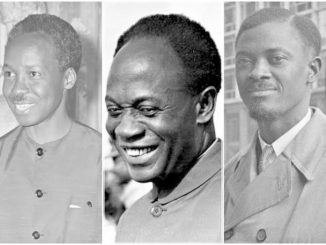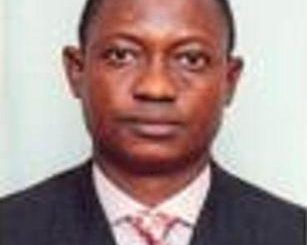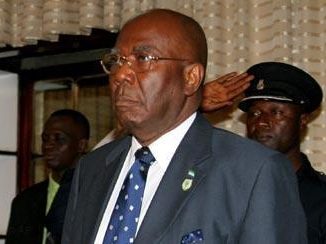I have written several times in this Column that what we have in Sierra Leone is a ‘fake democracy’. Seven months to another General Elections in our Second Republic there is nothing in the blazing partisan headlines of newspaper stories, the well-attended political meetings…to change my mind. Democracy is supposed to be a competition of ideas. The electorate are supposed to buy (vote for) the party, or candidate, with the best ideas. Democracy has- largely; not absolutely – sired capitalism. The core logic of capitalism is competition. As businesses compete among themselves they would continually offer the consumer better goods, services, and ideas. This logic is central in democracy too. But, in a fake democracy like ours, there is almost no competition of ideas. So, whatever party wins an election, it could not be because of that party having marketed the best ideas. Perversely in Sierra Leone , political parties have won elections because they have peddled the basest ideas – ethnicism, regionalism. .
On UN Radio in Freetown , I have challenged the populace thus: can you come out with a single point that shows a difference between the education, health…. policy among the SLPP, APC or PMDC? Yeehnnn!! Nothing!! Maybe, I am writing ‘Greek’ here, while the majority of Sierra Leoneans only understand Vai, Sherbro and Gola….Okay, so, if we are Temne-speaking, we insist that a Temne-speaking man must be President or Vice President. Or, if we are Mende-speaking, we insist that a Mende-speaking man must be our national leader, or, at worst, vice president. What was the ‘tribe of the bullet’ and cutlass that Foday Sankoh used to massacre us? When we are sick – seriously!! – do we ask whether our doctor is Mende or Temne? We can continute to insanely cling to our primordial political emotions in Sierra Leone , but, for once, let us shift focus….
“About 90% of the doctors trained by the medical school in Sierra Leone over the past ten years have emigrated to greener pastures”: the slim 28 year old Dr. Baimba Tapima Rogers told me on Saturday, January 13, 2007, in the office of his medical-doctor father’s KRIM CLINIC on Krootown Road . Most of these doctors trained in our medical school here have fled. Why? Low pay! The extremely meticulous, and intellectual, Dr. Baimba Rogers told me that doctors fresh from our medical school would sometimes have to wait for five months before they are put on government payroll. And when they get paid, it would be about Le260,000 (eighty seven U.S.dollars). A MONTH!!!, please. Dr. Baimba Rogers in his subdued jocular way said: “If you see a nice looking well-dressed gentleman by the roadside, frenetically looking at his watch…he is likely to be one of our young medical doctors…” If a doctor lives in Calabar Town , and has to come to work in downtown Freetown , all his monthly pay would be spent on just transportation alone. On poda-poda!! (‘Poda-podas’ are over-crowded mini-buses; which are normally scrambled for during peak hours). How can a medical doctor endure such indignity for even two months….It’s no wonder that they’ve left. In droves…
I asked Dr. Baimba Rogers to name names of his peers who have left the country. He did. Dr. Sahr Kortequee (who was a firebrand student leader five years ago), a 2001 graduate from COMAHS, now a surgeon specialists in Yorkshire, in the United Kingdom . Dr. Maadi Rogers, a radiologist at Guy’s Teaching Hospital in London . Dr. Christopher Sondai, now a research assistant in Oxford University . Dr. Franklin Luke, a radiologist in Sheffield , U.K. Dr. Alpha Gebbeh, and Dr. Yemma Gebbeh (siblings), both in the U.K. Dr. Marian Morgan, a Pediatrician in the United States . Dr. Desmond Wright, also practicing in the U.S….And many others. Some of them working an average of £2,700 a month (One British pound exchanges for about Le5,500. So, the young Sierra Leonean medical doctor in the U.K. would earn about fifty eight times what his peer in Sierra Leone would be earning). The tragedy of the global medical field is that…Well, we have such few doctors that the majority of our citizenry die prematurely from even simple ailments that a medical doctor would diagnose, and issue prescription for. Maybe, Dr. Baimba Rogers is being bridled – for now – by his medical doctor father, Dr. Thomas Tibo Rogers.
In September of 1973, Dr. Tibo Rogers entered the University of Erlangen-Nuremberg in West Germany , to study medicine. In 1980, he passed the MD (“Aerztlicke Pruefung”) in Erlangen . In 1982, he was awarded Ph D, Magna cum Laude at the Department of Legal and Forensic Medicine, in the same university he had his first degree in. In 1996, Dr. Tibo Rogers continued his Postgraduate Training in General and Thoracic Surgery at the University of KIEL, Germany; and in 1998, passed the Specialist Examination of the German Chamber of Surgeons, and received the recognition ‘FACHARZT FUER CHIURGIE’ Surgeon Specialist…Between 1998 and 2000, he was Assistant Lecturer at the Department of General and Thoracic Surgery, University of Kiel, German….Well, Dr. Rogers has not always been studying medicine in Germany. Dr. Tibo Rogers returned to Sierra Leone from Germany in 1986, and he has worked in hospitals in Bo, Koinadugu, Kambia, Moyamba, Pujehun, Bonthe, and in Freetown . He is currently Senior Surgeon Specialist, and Acting Head of Surgery in the main teaching hospital in Freetown , Connaught Hospital . That a man like Dr. Tibo Rogers can work in Sierra Leone for so long while his peers are earning, relatively, fortunes in the West manifest his sublime nature. But, for how long would he rein his medical doctor son, Dr. Baimba Rogers?
So frightening is this problem of brain drain for Africa that one cannot overemphasize the need for innovation, and political will – as is being experimented with by countries like South Africa
The South African Network of Skills Abroad (SANSA) is an example. Through its website, it invites professional South Africans to sign up. It reports that at least 22,000 graduates from five major South African universities resident abroad remain in touch with the universities. Looking at the nature of their skills, the group estimates that about 30 per cent of the University of Cape Town ‘s contactable doctoral graduates are living overseas. Whatever ideas are experimented with, it is what the politicians make of a country like Sierra Leone that matters.
In Kenya , the election of a new president, Mr. Mwai Kibaki, spawned a period of euphoria and a wave of returns by exiles hoping to rebuild a country that had all but collapsed under the weight of 24 years of rule by former President Daniel arap Moi. Current Kenyan President Kibaki has been quick to invite Kenyans “who have been hounded out of our shores by repressive policies of our predecessors to come back home and join us in nation-building.” He notes that the country desperately needs “the genius of its citizens wherever they are. It’s time for healing and we need every hand on deck”: Reversing Africa ‘s ‘brain drain’By Gumisai Mutume, 2006.
We have experienced in Sierra Leone one of the most nauseous and brutal civil wars in human history. We are still healing our wounds. One hopes that as we intensify our politicking, we would not open old wounds, and inflict new wounds on our nation. Let us swing away from our traditional ethnic and regional politics…And turn the spotlight on policies on health, education, mining…Challenge!!!
:
![]()




Leave a Reply